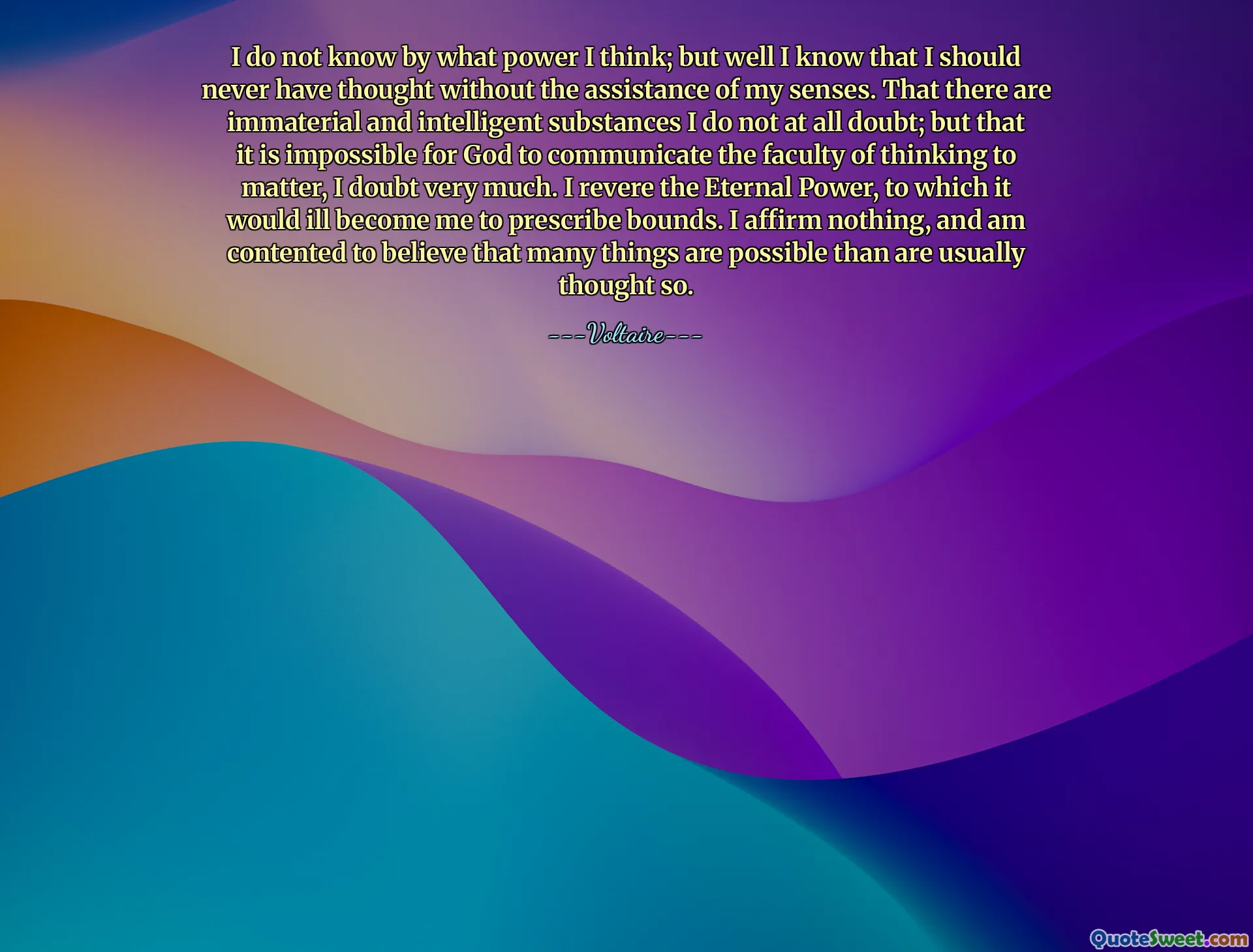
I do not know by what power I think; but well I know that I should never have thought without the assistance of my senses. That there are immaterial and intelligent substances I do not at all doubt; but that it is impossible for God to communicate the faculty of thinking to matter, I doubt very much. I revere the Eternal Power, to which it would ill become me to prescribe bounds. I affirm nothing, and am contented to believe that many things are possible than are usually thought so.
Voltaire's statement captures the profound humility and wonder inherent in philosophical inquiry and human understanding. He acknowledges the mysterious nature of thought itself—how it arises from some power beyond his direct knowledge, yet he firmly grounds thinking in the empirical reality of sensory experience. This blend of skepticism and faith exemplifies the Enlightenment's drive to reconcile reason with reverence for the unknown.
The quote reflects a deep respect for the concept of immaterial and intelligent substances, suggesting an openness to metaphysical realities that science alone may not fully explain. Voltaire is skeptical about the idea that God can endow matter with thinking, indicating his critical stance towards simplistic explanations and his preference for nuanced inquiry.
Moreover, his reverence for the "Eternal Power"—a possible reference to God or a higher force—avoids dogmatism and encourages exploration without confines. This mindset fosters a philosophical space where affirmation is suspended in favor of curiosity and openness, which is a powerful invitation for intellectual humility.
Voltaire's conclusion to "affirm nothing" but believe in the possibility of more than what is usually accepted underscores the importance of imagination, open-mindedness, and the readiness to embrace new ideas amid uncertainty. It offers a valuable lesson in balancing skepticism and wonder, encouraging one to approach knowledge not as an accumulation of absolute truths but as an evolving process filled with possibilities.
In essence, this quote resonates as a powerful reflection on the mysteries of thought, the limits of human understanding, and the importance of maintaining an open, respectful attitude toward the unknown. It is a discourse both philosophical and poetic, urging us to contemplate the vastness beyond our immediate grasp with awe rather than arrogantly setting boundaries.











